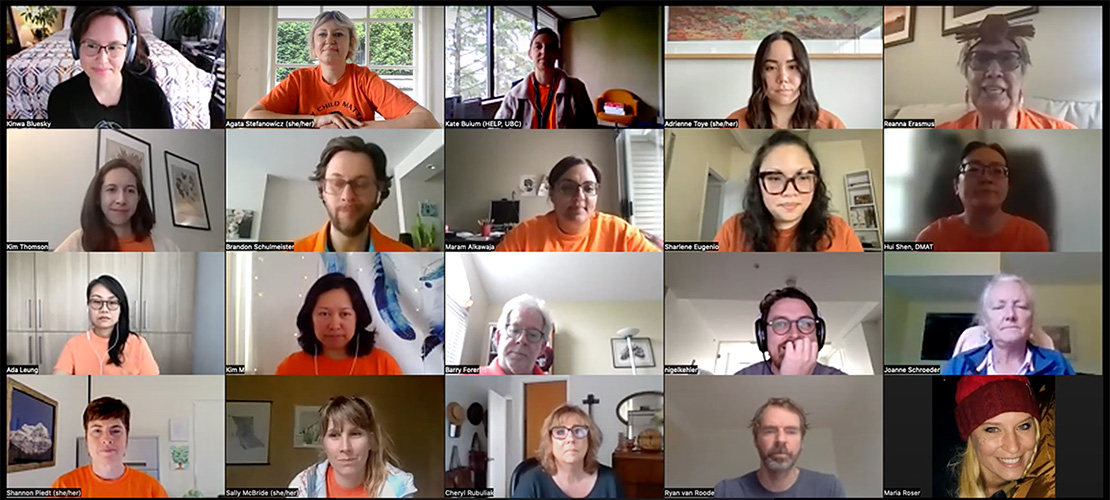Bannock & Banter is a recurring virtual kitchen table-style discussion that offers time and space for HELPers (the faculty and staff at HELP) to chat about the United Nations Declaration of the Rights of the Child, in conjunction with the United Nations Declaration on the Rights of Indigenous Peoples, the Truth and Reconciliation’s Calls to Action, and the National Inquiry into Missing and Murdered Indigenous Women and Girls’ Calls for Justice. These frameworks are the basis for important organizational discussions, and support HELPers to identify and act on our individual and collective responsibilities toward reconciliation and decolonization. The sessions are also a means for learning how to prioritize the perspectives and experiences of Indigenous communities, families, and children in HELP initiatives.
In other words, Bannock & Banter is “a HELP-wide collective effort to come together in the spirit of exploration and openness to Indigenous learnings,” says Kinwa Bluesky, who leads the discussions with support from members of the Aboriginal Steering Committee. As the Senior Manager of Indigenous Initiatives at HELP, Bluesky sees Bannock & Banter as an opportunity to “think deeply, talk kindly, and laugh — maybe even cry whole-heartedly. Each session offers ways to take action in upholding Indigenous teaching and ways of being.”
Bluesky further describes these online discussions as an “Indigenous-hour amuse-bouche of content” that participants can enjoy and learn over tea and bannock. When asked about what she hopes people can take home with them after attending, she answers “the earnest desire to get up and work towards creating change and impacts that will better the lives of Indigenous children, families and communities.” Bluesky also adds, “we also discuss the ‘how’ — which includes its manifestations of the big Bluesky ways, along with the small, itty bitty individual actions too.”
One of Bluesky’s favourite memories from a past discussion involves sharing a teaching from a former Peer Research Associate, Tracey Morrison, who was also known as the “Bannock Lady” in the Downtown Eastside of Vancouver (DTES). “Tracy was a harm reduction advocate, human rights leader for the DTES, and a fierce protector (and feeder) of her loved ones,” says Bluesky. “She was committed to ensuring that traditional, spiritual and cultural health and healing supports were available to all who needed them, and I was able to share a little piece of her and her guiding wisdom during a previous Bannock & Banter — I’m still working on it, Tracey!”
Past Bannock & Banter topics of discussion have included Calls to Action for The UN Declaration of the Rights of Indigenous Peoples, Missing & Murdered Indigenous Women, Girls and 2SLGBTQQIA+, as well as the latest session’s topic, celebrating Indigenous Peoples Day:
Beyond discussion and reflection, attendees have also participated in additional activities such as trivia — prizes and all! Bluesky encourages invitees to tune in and be curious and open, adding that “everyone has a role to play in reconciliation, Indigenization, health and healing, empowerment, and celebration — we can only do this together, as one. I hope you will join us on our journey!”
Recordings of previous Bannock & Banter discussions are available for viewing on HELP’s YouTube channel. To stay up to date on upcoming discussions as well as other HELP events, please subscribe to our newsletter .
